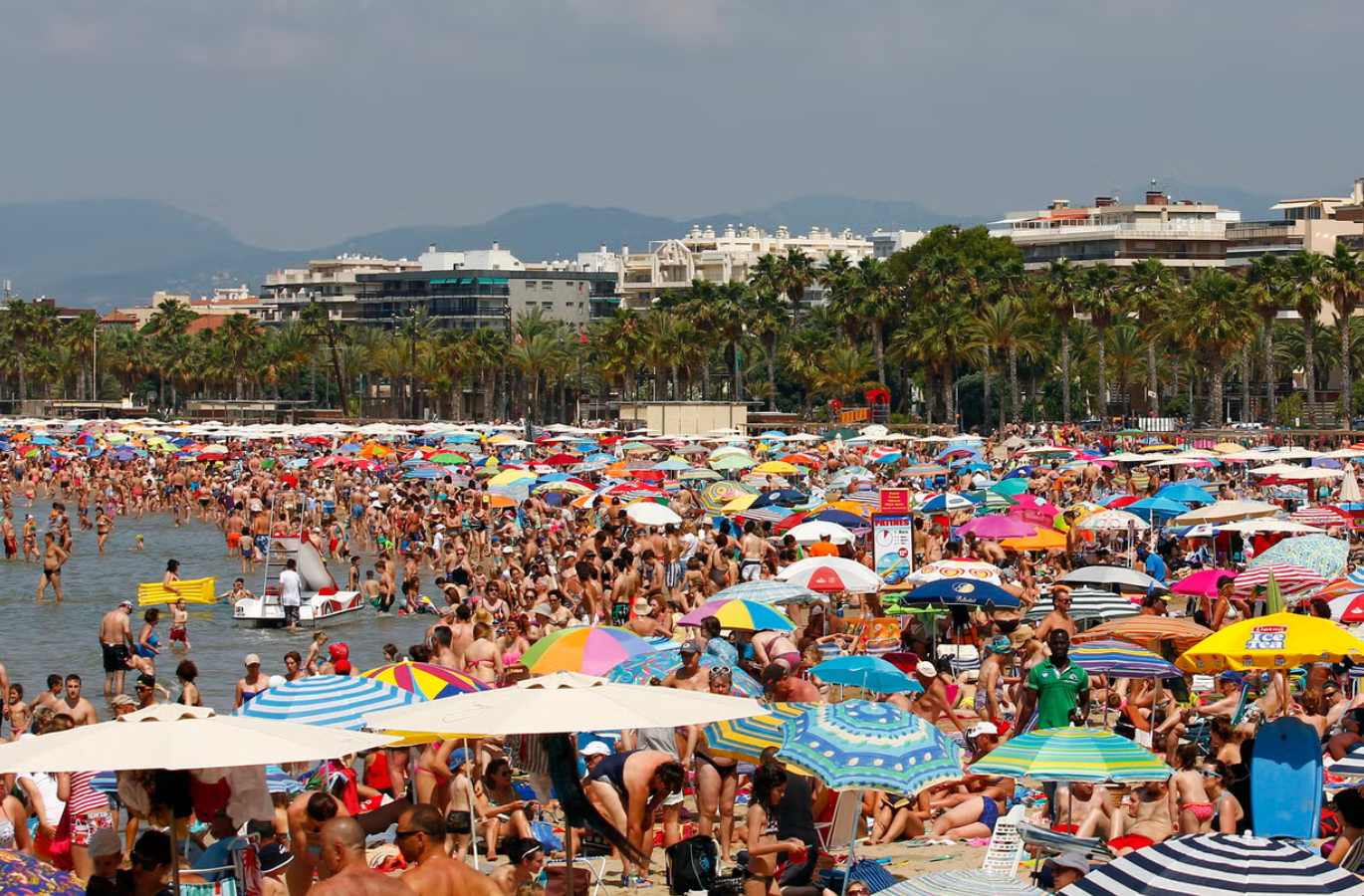The summer of 2025 will be etched into Spain’s history not only as a season of sun-drenched beaches and cultural vibrancy but as the year the nation’s tourism sector delivered a monumental statistical paradox. Despite a concerted national effort to introduce "overtourism measures" aimed at managing visitor numbers and mitigating local discontent, Spain smashed all previous visitor records. The sheer volume of international arrivals has thrown the government's balanced approach into question, sparking a renewed debate over whether current policies are merely token gestures against an unstoppable wave of global demand.

The Statistical Surge: A Tsunami of Tourists
Preliminary figures for the peak summer months (June through September) indicate that Spain welcomed an unprecedented number of foreign visitors, far surpassing the previous record set in 2023. Reports suggest an increase of approximately 12-15% in arrivals compared to the year before, with spending per tourist also seeing a healthy rise. Coastal hubs like the Balearic Islands and the popular cities of Barcelona and Madrid felt the brunt of the surge, with hotels running at near-100% occupancy and key attractions registering record daily foot traffic.
This boom is a testament to Spain's enduring global appeal, fueled by robust post-pandemic travel sentiment, favourable exchange rates, and effective international marketing. Yet, it simultaneously highlights the ineffectiveness of the recently implemented measures designed specifically to dial back the volume.
The Policy Response: A Whisper Against a Roar
In late 2024 and early 2025, Spanish regional governments—under pressure from mounting resident protests over housing shortages and environmental stress—rolled out several high-profile anti-overtourism policies. These measures were intended to shift the focus from volume to value and improve the quality of life for permanent residents.
The key measures introduced included:
Tourist Tax Hikes: In regions like Catalonia and the Balearics, the sustainable tourism tax was significantly increased, particularly for short stays and cruise passengers.
Short-Term Rental Restrictions: Major cities enforced stricter licensing rules, creating "red zones" where new tourist apartments were banned, or imposing a minimum stay duration to discourage transient visitors.
Cruise Ship Limitations: Ports in Palma de Mallorca and Barcelona established stricter daily limits on the number of cruise ships allowed to dock, aiming to reduce the short, intensive bursts of tourist activity that overwhelm local infrastructure.
Access Fees: Pilot programs were introduced for popular natural sites and remote island beaches, requiring pre-booking and a nominal fee to cap daily attendance.
The intended effect of these policies was clear: to introduce friction, raise the cost of visiting, and favour tourists who stay longer and spend more locally. The actual result, however, suggests the market simply absorbed the new costs without a noticeable reduction in demand.

The Expansion: Why the Floodgates Stayed Open
The failure of the 2025 measures to deter visitors is rooted in several powerful economic and psychological factors that government policies failed to account for:
1. The Revenge Travel Phenomenon Persists
Despite being years removed from the initial wave of post-lockdown travel, the global appetite for experiences—often referred to as "revenge travel"—continues to drive tourism. Spain, perceived as a relatively safe, accessible, and high-value European destination, remains the primary choice for millions prioritising a major international trip. A small increase in tourist tax or a slightly higher hotel price is viewed as an insignificant barrier compared to the desire to travel.
2. Global Economic Resilience
Targeted policy measures are only truly effective when the economy is soft. With relatively strong consumer spending in key source markets (UK, Germany, France, and the US), tourists can easily afford the marginal price increases. The cost of an entire holiday in Spain remains highly competitive compared to alternatives like Italy or the South of France.
3. Destination Diversification and Appeal
While the core measures focused on urban hubs and major islands, Spain's tourism appeal is vast. The surge was not just concentrated in Madrid and the Costa del Sol; increasingly, regions like Galicia, Asturias, and Castilla-La Mancha saw significant growth. This widespread popularity means that local measures in traditional hotspots can be easily bypassed by tourists seeking new, equally appealing Spanish destinations.
4. Policies Aimed at Management, Not Reduction
A critical analysis suggests that the implemented measures were too gentle. They were designed to manage the impact of tourism (by using the tax revenue for better services) rather than fundamentally reduce the number of visitors. To truly curb a 15% year-on-year rise, structural limits—such as strict, enforceable caps on new hotel licenses or a complete cessation of certain short-term rental categories—would be required.
A Policy Reckoning: The Future of Spanish Tourism
The record-breaking summer of 2025 serves as a clear warning to Spanish policymakers: the current suite of overtourism measures is insufficient to manage the current level of global demand.
As resident frustration continues to mount, particularly in areas where locals are being priced out of housing, the government faces an inevitable reckoning. Future debates will likely move away from incremental taxes and toward more radical, structural solutions. Potential future actions could include:
- Moratoriums on Development: Total, multi-year freezes on new tourist accommodation construction in high-density areas.
- Zoning Overhauls: Redefining residential zones to explicitly exclude short-term rental activity across entire municipalities.
- Environmental Levies: Introducing significant fees on high-impact activities, such as high-emission air and sea travel, to fund crucial environmental infrastructure upgrades.
Spain’s dilemma is clear: how to reconcile the massive economic benefit of tourism—which accounts for over 12% of its GDP—with the social and environmental sustainability of its most beautiful destinations. The shattered records of 2025 confirm that achieving that balance will require aggressive policies in the years to come.